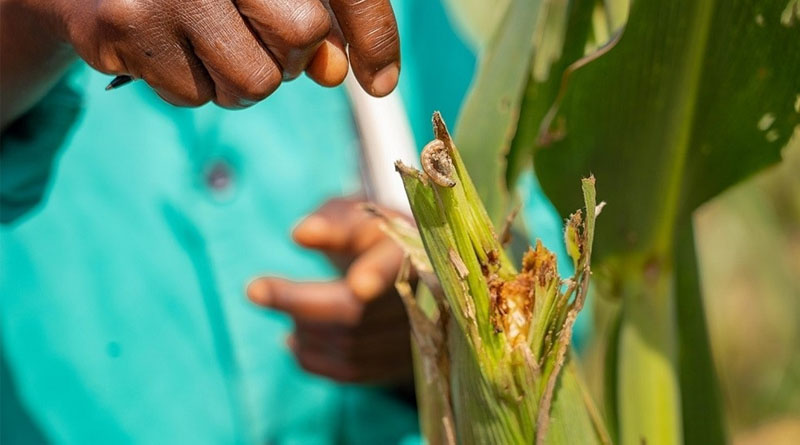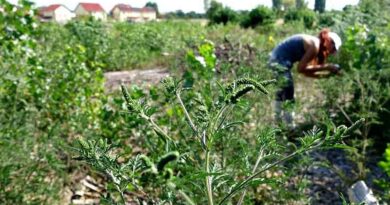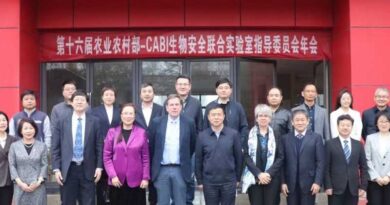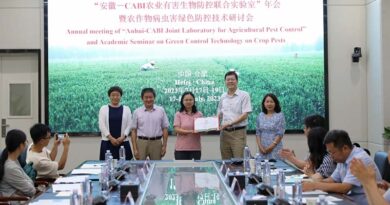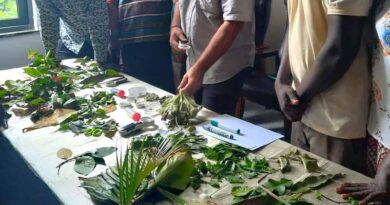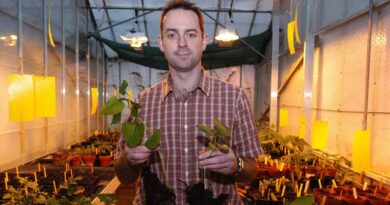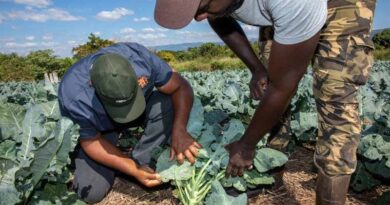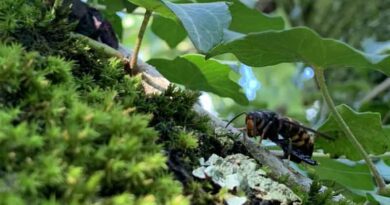CABI makes progress to sustainably tackle invasive pest and weed as part of EUR €6 million ADOPT-IPM project
03 February 2024, China: CABI is making good progress as part of its role in the EUR €6 million ADOPT-IPM project aimed at using Integrated Pest Management (IPM) tools to fight economically important crop pests and weeds affecting major crops across Europe and China.
ADOPT-IPM is an EU-China joint action set up by 32 partners from EU Member States, as well as from China and the United Kingdom, including research institutes, universities, small enterprises, and extension services.
Funded under the Horizon Europe research and innovation framework programme, ADOPT-IPM aims to develop, optimise, and implement a range of IPM tools and packages to reduce the reliance on chemical pesticides to tackle pests in wheat, maize, tomato, and leafy vegetables.
CABI, together with partners, is leading the development of a web based IPM tool performance demonstrator and is also making valuable contributions to the creation and efficacy of IPM or biocontrol tools against two devastating invasive pest and weed, fall armyworm (Spodoptera frugiperda) and common ragweed (Ambrosia artemisiifolia).
Devastating impact of invasive pests and weeds
According to Eschen et al. (2021), fall armyworm causes estimated annual yield losses of USD 9.4 billion in Africa alone and it is suggested by Tambo et al. (2021) that some of these pests can fly continuously for 48 hours, which would greatly increase the area of crops under potential damage.
A workshop held in 2021, involving scientists from the MARA China-CABI Joint Laboratory for Biosafety and MARA China-CABI European Laboratory, heard how there are around 70 natural enemies of the fall armyworm in China.
They include 44 predators such as Pentatomidae, Lygaeidae, Anthocoridae, Nabidaem Coccinellidae, Reduviidae, Chrysopidae, Forficulidae, Formicidae and Vespidae species. Beneficial bugs and beetles constitute 68% of the predators.
Meanwhile, common ragweed is a worldwide invasive weed originating from North America. It causes a great deal of suffering to people because of its highly allergenic pollen, which is typically released from August to October in the Northern Hemisphere.
In 2020, CABI led a team of scientists in new research which revealed that the leaf beetle – Ophraella communa can help relieve more than two million sufferers of allergies in Europe while also saving more than EUR €1 billion in health costs.
Good progress being made
So far, CABI has designed the fieldwork protocol for the fall armyworm model calibration work and assessed fall armyworm distribution in China to optimize field site locations.
Experimental designs on laboratory bioassays and semi-field cage tests to assess the feasibility and efficacy of a push-pull crop system against fall armyworm under controlled conditions have also been designed.
Field cage experiments have been conducted along an environmental gradient at six field sites in Central and south-eastern Europe to assess the efficacy of O. communa as a biocontrol agent against common ragweed.
The results showed that O. communa built up high population densities inside the cages in central Slovenia, while population growth was limited at some sites in central and southern Hungary.
Wireframes of the IPM performance demonstrator have also been developed to illustrate user journey and examples of potential outputs from the IPM tool demonstrator.
Develop, optimize, and implement IPM tools and packages
Dr Feng Zhang, Regional Director, East & South-East Asia, and Project Manager, said, “Every year a high percentage of food crops are lost to plant pests and diseases and there are growing concerns over the effects of pesticides used in agriculture on the environment, non-target plants and animals, and human health.
“CABI is making good progress as part of its role within the ADOPT-IPM project in partnership with colleagues from Europe and China as we seek to develop, optimize, and implement IPM tools and packages.
“The project will aim to reduce the dependence of farmers on conventional chemical pesticides in the EU, China, and associated countries that share similar problems with the same crops and pests.”
Dr Zhang added that while progress has been made in creating IPM tools in the past decade and European Union and Chinese policies, widespread adoption by farmers has not taken off sufficiently.
This might be because, he suggests, that many available non-chemical IPM tools, e.g. biocontrol -based approaches, have not been optimized so they lack reliability or effectiveness. Furthermore, it may be that they are sub-optimal when combined in IPM packages because they have not been developed via an integrated approach with less consideration of involving end-users.
“The joint EU-China approach utilised by the ADOPT-IPM project will make agricultural products safer for domestic consumers while ensuring profitable trade among countries,” Dr Zhang said.
The CABI team involved in the work includes Dr Urs Schaffner, Dr Stefan Toepfer, Katherine Cameron, Michelle Jones, Mike Frewin, Dr Bryony Taylor, Alyssa Lowry and Dr Hongmei Li.
Also Read: Rallis India scales up supply chain effectiveness through digital platform ‘Plan Guru’
(For Latest Agriculture News & Updates, follow Krishak Jagat on Google News)

